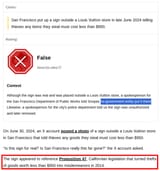>>513687970II. The Net-Tax-Payer Voting System
The proposed system is straightforward in principle, rigorous in consequence:
1. Eligibility: Only individuals who contribute more in taxes than they receive in welfare can vote. This defines a “net-taxpayer” as the arbiter of political authority.
2. Neutrality: This system makes no distinctions of race, gender, or personal wealth beyond net societal contribution. The metric is economic responsibility, not identity.
3. Enforcement: Governments maintain precise accounting of taxation versus welfare disbursement per citizen. Eligibility is updated periodically, reflecting current fiscal contribution.
4. Consequences: Political incentives shift. Politicians must now appeal to productive, net-contributing citizens, eliminating the advantage of expanding dependency to secure votes.
III. Expected Outcomes
• Elimination of Perverse Incentives: Politicians can no longer rely on dependency to maintain power; systemic corruption tied to welfare expansion is curtailed.
• Alignment of Policy with Productivity: Public policy is now informed by those who sustain the state financially, ensuring decisions favor long-term societal survival over short-term political gain.
• Self-Correcting Feedback: As citizens recognize the tangible link between contribution and influence, cultural norms evolve to value productivity and responsibility, further stabilizing the system.
IV. Addressing Objections
• Equity Concerns: Critics may argue this disenfranchises the poor. Yet the system measures net societal contribution, not wealth alone. Low-income individuals who contribute more than they consume retain full political agency.
• Complexity: Administrative tracking is required, but modern fiscal systems already record taxation and benefits. Precision is achievable; enforcement is a matter of design, not principle.





